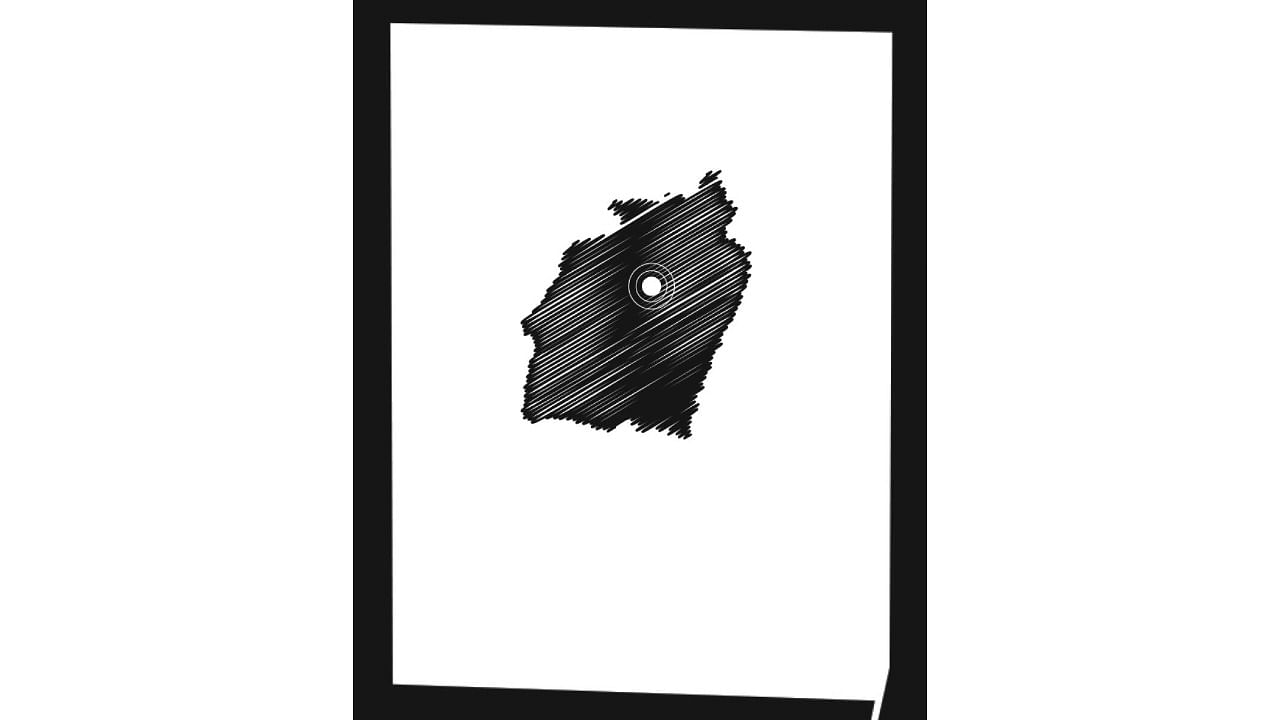
Manipur, with its capital at Imphal, is bordered by Nagaland, Assam, and Mizoram. To its east is part of India’s sensitive international border with Myanmar (formerly Burma), which is increasingly under covert Chinese influence.
A part of the Second World War Burma Campaign, the gruelling and historic Battle of Imphal was fought during March to July 1944, at great cost to both Indian and Japanese troops. The outcome was the defeat and withdrawal of Japanese forces, and the beginning of the “Defeat into Victory” chapter of the Indian Army.
Fast forward
Seventy-nine years later, a different battle is underway in Manipur. Tension has arisen between the Meitei people, who form the majority in the Imphal valley, and are mostly Hindus, and the various tribes, over 30,inhabiting the hilly regions surrounding them. The Meitei plains people are economically better off compared to the tribal hill people.
Also Read | Manipur: Biren Singh meets Amit Shah; HM concerned over 'visible lawlessness' in the Valley
The tension has escalated into a dispute, as the tribal communities resent what they perceive as the Meitei population cornering a disproportionate share of the meagre development benefits provided by the central government to Manipur. This is compounded by the longstanding Meitei demand for Scheduled Tribe (ST) status, so that they too could avail privileges and benefits granted to ST communities. The Meiteis have made multiple requests for ST status to the Centre since 2013, which the tribal communities have consistently opposed. It is a typical case of conflict of interests over a limited resource.
On March 27, 2023, in response to a petition by the Meiteis, the Manipur High Court directed the state government to recommend the inclusion of the Meitei community in the ST list, and make a decision “preferably within four weeks”. This order disregarded a previous Supreme Court judgement that only Parliament, with the President's concurrence, can include any community in the ST List. A Meitei group filed a review petition in the Manipur High Court, seeking a modification of the March 27 order. However, on May 17, the Supreme Court stayed the Manipur High Court's order, which directed the state government to consider recommending the inclusion of the Meitei community in the ST list to the Centre. The Manipur High Court has listed the next review petition hearing for July 5.
Amidst the legal petitions and reviews, violence erupted between the Meiteis and the tribal peoples, starting on May 3 in Churachandpur. The violence was triggered by the Meitei-dominated Manipur government accusing people in the hilly region of cultivating poppy, and ordering their eviction as well as taking other action against alleged illegal migrants from Myanmar in the hilly regions. This added to the simmering anger among the Kuki tribe regarding the March 27 judgement.
The violence continues, even 51 days later. Mobs have looted large quantities of weapons and ammunition by raiding police stations. Armed Kuki and Meitei mobs roam the state, engaging in killing, arson, and looting.
Over 100 people have been killed, a significant number injured, and around 50,000 people have been rendered homeless. The supply routes have been blockaded. The violent conflict, termed ‘civil war’ by some, has economic, ethnic, and communal dimensions. It is clearly a political issue that must be resolved through political means.
On May 27, Army Chief General Manoj Pande visited Manipur to review the deteriorating security situation. Home Minister Amit Shah’s three-day visit to Manipur starting May 29 did not stem the violence. On May 31, CDS General Anil Chouhan stated that the violence in Manipur is primarily a clash between two ethnicities and not connected with an insurgency. That is, the problem is political in character, and the state government together with the central government should restore peace by deploying the Central Armed Police Forces (CAPFs). The Army and Assam Rifles have already committed around 13,500 troops to the internal security role.
However, the state and central governments are unable to restore peace. The government has lost both administrative control and public confidence. Political fragmentation has begun, with BJP MLAs calling for Chief Minister Biren Singh’s replacement, and Kuki MLAs calling for a separate Kuki administration.
Although Prime Minister Narendra Modi has spoken on other matters, his inexplicable and baffling silence on Manipur, has led some to wonder whether Manipur remains a state of the Indian union. PM Modi did not give audience to two Manipur BJP delegations and one Congress delegation to Delhi, pleading for measures to restore peace.
Home Minister Amit Shah called for an unprecedented all-party meeting in Delhi on June 22, to address the Manipur crisis, while the PM, on a state visit to the US, maintains silence and the violence continues.
Every day the PM delays saying something, anything, about the violence in Manipur and makes it more difficult for him to speak. After remaining silent for weeks, it is exceedingly difficult to anticipate his response when he finally breaks his silence. If he calls for peace – which presumably he would do – people will wonder (and the more outspoken ones will ask) why he didn't do so earlier.
Chief Minister Biren Singh appears to be floundering out of his depth, and incompetent in handling the situation. What is even more alarming is the possibility that our PM’s silence indicates a similar situation. The outcome of HM Shah’s All-Party Meeting, and the subsequent decisions will be closely watched nationally and internationally, especially by the suffering people of Manipur trapped in the violence between the Meitei and Kuki communities, and who are praying for peace.
The fighting is centred around Imphal, Manipur’s capital. Just as the fighting in Imphal during March to July 1944 was a turning point, one wonders if the current situation will also be a turning point for domestic politics. Communal violence has been reported in other BJP-ruled states like Uttarakhand (Purola) and even Gujarat (Junagadh). Only time will tell how Manipur matters.